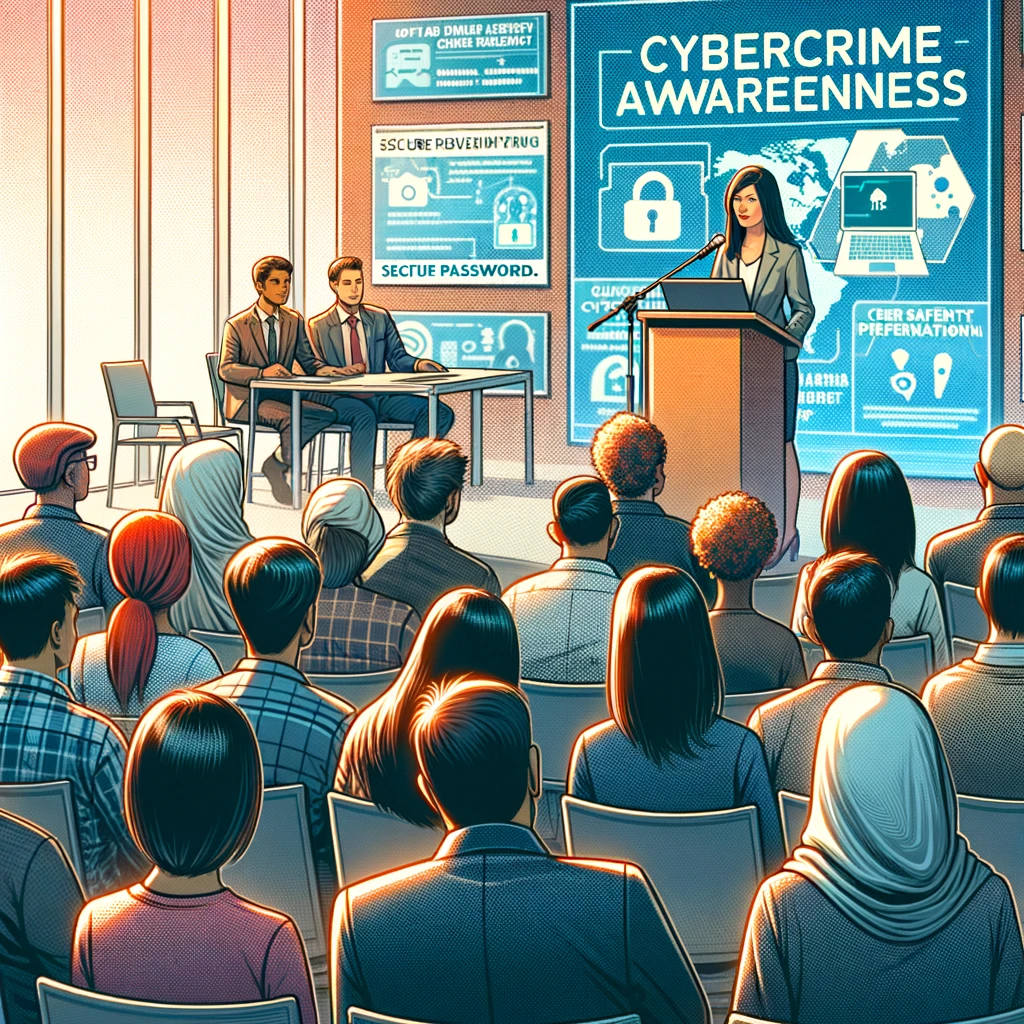Table of contents
In today’s digital age, the internet has become an integral part of daily life, revolutionizing how we communicate, work, and entertain ourselves. However, this technological advancement has also given rise to a new wave of criminal activities known as cybercrimes. In British Columbia (BC), Canada, these crimes are taken very seriously, with comprehensive laws designed to protect citizens from various online offences, including identity theft and hacking. This blog post explores the legislative landscape surrounding cybercrime in BC, outlining key laws and offering insights into how these regulations help combat digital offences.
Understanding Cybercrime
Cybercrime encompasses any criminal activity that involves a computer, networked device, or a network. While most cybercrimes are carried out to generate profit for the cybercriminals, some are committed against computers or devices directly to damage or disable them. Others use computers or networks to spread malware, illegal information, images, or other materials. The most common types of cybercrime include hacking, identity theft, and the distribution of illicit materials.
Cybercrime Legislation in British Columbia
In BC, cybercrime is governed by both federal and provincial laws. The federal government’s Criminal Code covers most cybercrimes, outlining specific offences and their corresponding penalties. Key provisions include:
- Section 342.1: Deals with unauthorized use of a computer or data. It targets individuals who access computers or networks without permission, a common practice in hacking.
- Section 430(1.1): Focuses on mischief related to data, meaning any wilful damage or interference with data or a computer system’s operation.
- Section 403: Addresses identity fraud, making it illegal to use someone else’s identity information for deceptive purposes without their consent.
These sections of the Criminal Code are critical for prosecuting cybercrimes in BC, providing clear definitions and frameworks for legal action against offenders.
Identity Theft: A Growing Concern
Identity theft involves the unauthorized collection, possession, and distribution of personal information, typically used for criminal purposes like fraud. This can include names, social security numbers, credit card information, and other personal identifiers. Identity theft can lead to significant financial losses for victims and can severely damage their credit and reputation.
The BC government has implemented several strategies to combat identity theft, including close cooperation with financial institutions and educating the public on safeguarding personal information. Additionally, victims of identity theft are encouraged to report incidents to the BC Provincial Police or local police departments, who can take action under the federal Criminal Code.
Combating Hacking
Hacking involves unauthorized intrusion into a computer system or network. It can result in the theft of valuable information, financial loss, and damage to the systems. To combat this, the laws in BC not only prohibit unauthorized access but also penalize the possession of hacking tools with the intent to use them unlawfully.
Law enforcement agencies in BC are equipped with specialized cybercrime units that focus on tracking down hackers and preventing cyberattacks. These units work closely with national and international bodies to ensure a coordinated response to cyber threats.
Preventative Measures and Public Education
Recognizing the importance of prevention, the BC government actively promotes cybersecurity awareness and education. Initiatives include public service announcements, workshops, and resources that teach individuals and businesses how to protect themselves from cyber threats. Schools and universities also integrate cybersecurity topics into their curricula to ensure that the next generation is better prepared to deal with these issues.
The Role of Legal Professionals
Legal professionals in BC play a pivotal role in addressing cybercrime. They help interpret cybercrime laws, represent victims, and provide legal advice to organizations on compliance and preventive practices. As cybercrime laws continue to evolve, staying informed about the latest legislative changes is crucial for legal practitioners.

Pax Law can help you!
Cybercrime is a significant threat in our increasingly digital world, but British Columbia is at the forefront of combating these offences with robust legislation and proactive measures. Through a combination of strict laws, dedicated law enforcement agencies, and extensive public education programs, BC aims to protect its citizens from the myriad threats posed by cybercriminals. As technology continues to advance, so too will the strategies to protect against and penalize cybercriminal activities, ensuring that the digital space remains safe for all users.
Our lawyers and consultants are willing, ready, and able to assist you. Please visit our appointment booking page to make an appointment with one of our lawyers or consultants; alternatively, you can call our offices at +1-604-767-9529.
FAQ
Cybercrime includes any criminal activity that involves a computer, networked device, or network. Common types of cybercrime in BC include hacking, identity theft, and distributing illegal materials online.
Cybercrime in BC is covered by both federal and provincial laws, with the Criminal Code of Canada providing the main legal framework. Key sections relevant to cybercrime include Section 342.1 (unauthorized use of a computer), Section 430(1.1) (mischief in relation to data), and Section 403 (identity fraud).
Identity theft involves unauthorized collection, possession, and distribution of personal information, such as names, social security numbers, and credit card details, typically for fraudulent purposes. Victims should report such incidents to local police or the BC Provincial Police, who act under the Criminal Code.
Hacking, or unauthorized intrusion into computer systems, is illegal. Penalties can include fines and imprisonment, depending on the severity and consequences of the intrusion. The possession of hacking tools with the intent to use them unlawfully is also penalized.
Individuals should immediately report the crime to their local police department or the BC Provincial Police. It is also advisable to keep all evidence intact, such as emails or transaction logs, which can be crucial for the investigation.
The BC government recommends regular cybersecurity training, using strong, unique passwords, updating software regularly, and employing security solutions like firewalls and antivirus software. Public education campaigns and resources are available to help raise awareness about safe online practices.



0 Comments